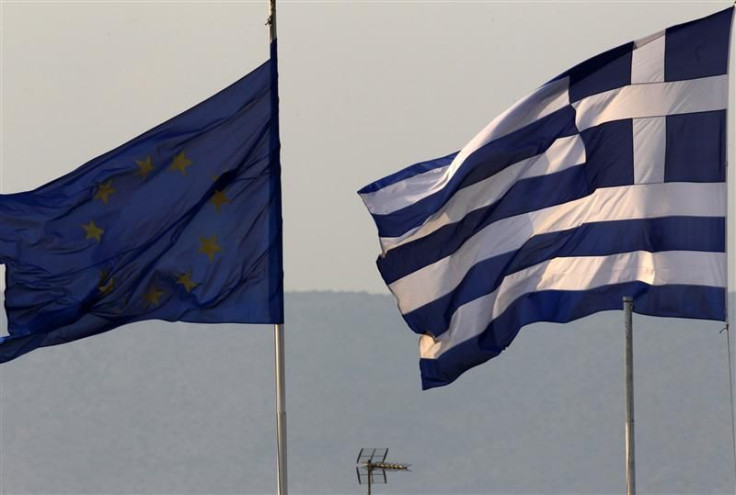Top Lenders OK Greek Bond Swap Plan

Greece's major bondholders voiced their support on Monday for a deal that will halve the value of their debt holdings and aims to put the country back on a sustainable debt-repayment footing.
The steering committee of the Institute of International Finance (IIF), which includes a dozen major investors in Greek bonds and helped draw up a deal agreed last month, said it would accept the offer.
Greece and its creditors are in the final stages of talks aimed at a deal that would cancel more than 100 billion euros ($132 billion) of its debts. Private lenders, mainly banks, insurers and investment institutions, have to reveal their intentions with regard to the deal by Thursday night.
About a quarter of privately-held Greek debt is estimated by industry sources to be in the hands of hedge funds, which are not represented by the IIF committee.
The latest move is seen as an attempt to build up momentum before the deadline, and follows weekend comments from the IIF that it was confident the bond swap deal will complete successfully this week.
The IIF has refused to estimate how much of Greece's 206 billion euros the steering committee holds, but it is likely to be about 90 billion euros, two people familiar with the matter said.
The steering committee includes banks, insurers, asset managers and hedge funds like BNP Paribas , Deutsche Bank , National Bank of Greece , Allianz and Greylock Capital Management. A wider creditor group included more than 30 firms.
Under the deal agreed with euro zone officials and the IMF last month, government debt holders are being asked to swap their old bonds for a package of new English law Greek bonds and securities issued by Europe's rescue fund.
They must write off 53.5 percent of the nominal value of their debt, and effectively lose about 74 percent of their investment value after taking into account future interest payments.
Greece is expected to deploy so-called collective action clauses, or CACs, to compel those who decline the offer to take a loss as well. Sweeping up these investors would maximize income, mean hold-outs do not stand to get a better deal, and makes the process more straightforward.
Petros Christodoulou, the head of Greece's debt management agency, warned holdouts they would not get a better deal.
There is just no money for holdouts, Christodoulou was quoted as saying by the New York Times. We are prepared for legal challenges but the risk here is that people are trying to be too smart. ($1 = 0.7573 euros)
(Reporting by Sophie Sassard, Steve Slater, Sarah White, Ingrid Melander, Lionel Laurent and Philipp Halstrick; Editing by Jon Loades-Carter and Andrew Callus)
© Copyright Thomson Reuters {{Year}}. All rights reserved.





















